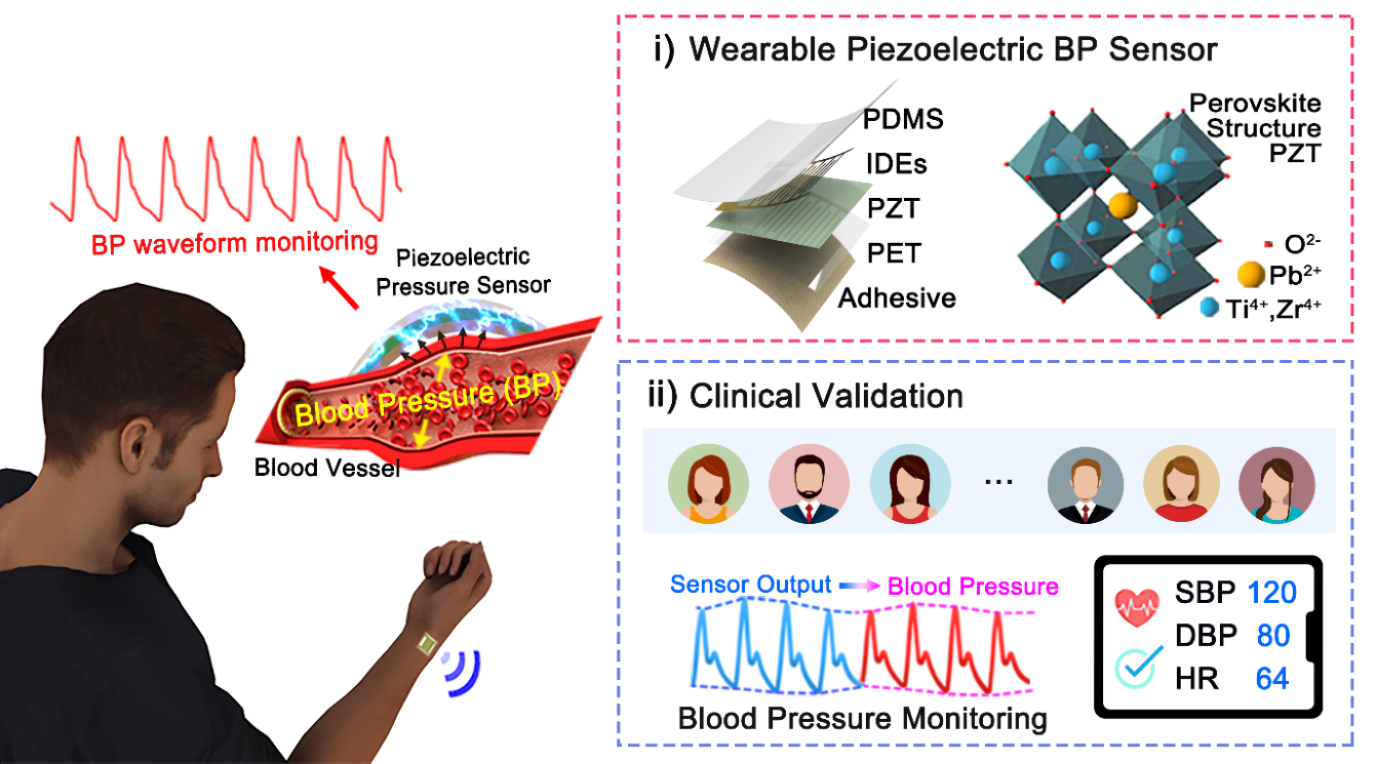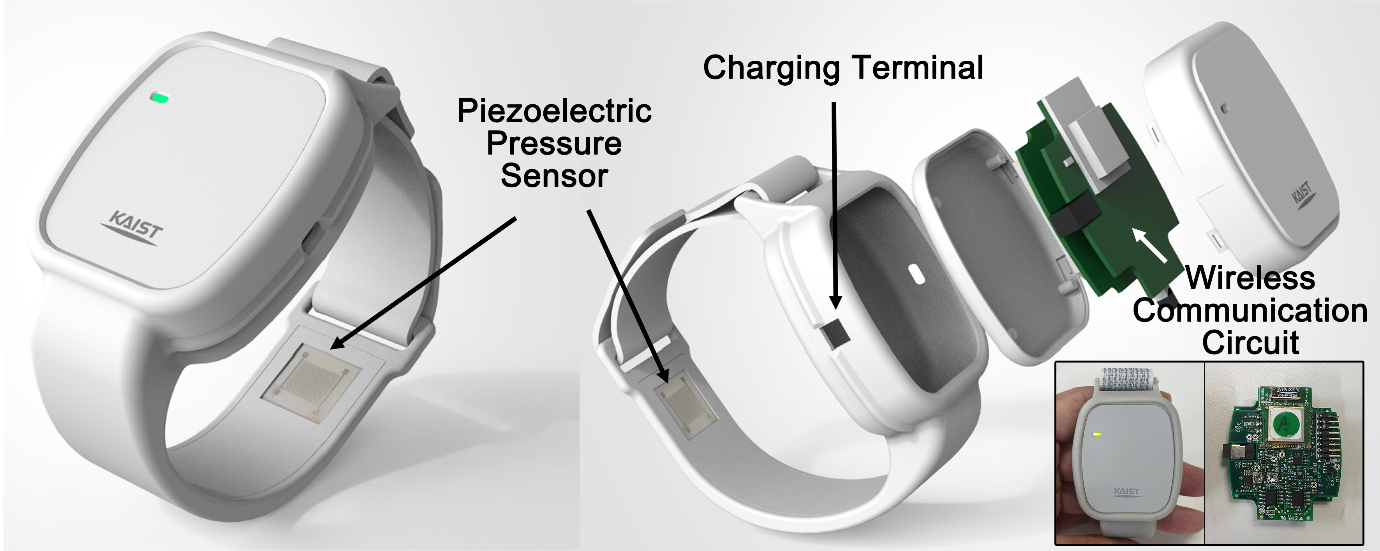Recently, wearable blood pressure sensors have attracted attention as healthcare devices for continuous non-invasive arterial pressure monitoring. Wearable piezoelectric blood pressure sensors have demonstrated potentially promising use in continuous personal health monitoring and overcoming accuracy limitations.
Cardiovascular disease is the leading cause of global death. In order to assess general health and predict stroke or heart failure, blood pressure is a critical indicator. Therefore, periodic measurement of blood pressure that can be measured conveniently and accurately is crucial for personal healthcare.
A KAIST research team, led by Professor Keon Jae Lee from the Department of Materials Science and Engineering and the College of Medicine of the Catholic University of Korea, has developed a highly sensitive, wearable piezoelectric blood pressure sensor.
There has been a growing interest in healthcare devices for continuous blood pressure monitoring. Although smartwatches using LED-based photoplethysmography (PPG) technology have been on the market, these devices have been limited by the accuracy constraints of optical sensors, making it difficult to meet the international standards of automatic sphygmomanometers.
Professor Lee’s team has developed a wearable piezoelectric blood pressure sensor by transferring a highly sensitive, inorganic piezoelectric membrane from bulk sapphire substrates to flexible substrates. Ultrathin piezoelectric sensors with a thickness of several micrometers (one-hundredth of the human hair) conforms closely with the skin to successfully collect accurate blood pressure from the subtle pulsation of the blood vessels.
Clinical trials at the St. Mary’s Hospital of the Catholic University validated the accuracy of blood pressure sensor on par with international standard with errors within ±5 mmHg and a standard deviation under 8 mmHg for both systolic and diastolic blood pressure. In addition, the research team successfully embedded the sensor on a watch-type product to enable continuous monitoring of blood pressure.
Prof. Keon Jae Lee said, “A major target of our healthcare devices is hypertensive patients for their daily medical check-up. We plan to develop a comfortable patch-type sensor to monitor blood pressure during sleep and have a start-up company commercialize these watch and patch-type products soon.”
These results were published in the article titled “Clinical validation of wearable piezoelectric blood pressure sensor for health monitoring” in June 2023 issue of Advanced Materials.








